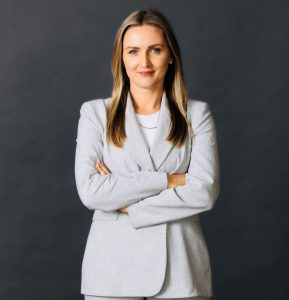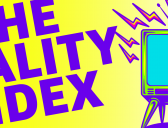Launching in 2001, the Malta Gaming Authority licenses and regulates online betting sites within its jurisdiction, as well as many within the UK. The aim of the organisation is to maintain operator transparency, prevent crime and to ensure a high level of player protection. Alongside the statutory regulation required by betting sites operating in the UK market, many operators follow the audited benchmark expectations of the MGA, which includes an objective to protect minors and vulnerable people while safeguarding player interests and finances. Today we spoke to Kinga Warda, MGA Chief – Policy and International Affairs, about safer gambling practices, and whether self-exclusion tools go far enough to protect vulnerable gamblers.
AS: The MGA is considering the publication of a voluntary ESG (Environmental, Social and Governance) code. In what ways do you think this will benefit operator practice outside of your current regulations for casino and gambling site operation?
KW: The voluntary ESG code of good practice for the gaming sector is a new initiative that is being explored by the MGA. We are very excited to be the first regulator looking holistically into the sustainability of the gaming industry. The initial feedback from the sector has been very encouraging, and we look forward to working closely with our licensees to continue transforming the gaming sector into a more transparent and sustainable one.
Unlike other industries, ESG reporting is relatively new to the gaming sector. Although some of our licensees report on ESG publicly and set their own sustainability standards – which we applaud and fully support – we believe that the wider sector lacks common priorities for ESG in gaming. We aim to close this gap with our voluntary ESG code of good practice.
Reporting such efforts contributes positively to implementing change within the sector and improving its overall perception, while also addressing the increasing demand for transparency and accountability in the industry. We believe that measuring and reporting ESG targets could encourage operators to consider the broader impact of their operations on society and the environment, beyond the scope of the existing regulatory requirements. This could lead to business practices that are more socially responsible and sustainable, which can benefit not only the operator but also the wider community as well as players. Nowadays, investors and customers alike harbour an increased interest in companies that prioritise ESG values, and an ESG code could demonstrate an operator’s commitment to these values.
AS: You have recently altered your Player Protection Directive to add emphasis to operator responsibility in regard to player safety. This includes implementing behaviour monitoring systems and employing analytical tools to uncover potential ‘markers of harm’. Do you have a basis for which these markers may manifest and how do you require operators to report back on their responsible gambling metrics?
KW: The obligation on MGA licensees to implement behaviour monitoring systems and analytical tools pre-existed the most recent amendments to the Player Protection Directive. These amendments introduced the concept of ‘markers of harm’ precisely to clarify the Authority’s expectations as to the minimum factors that must be considered by licensees when detecting and identifying problem gambling, as well as actions or behaviours which may indicate that a player is at risk of developing gambling problems.
The markers of harm included in the Directive were based on extensive research conducted by the Authority and also took into consideration the European Gambling and Betting Association’s (EGBA) proposal to the European Committee for Standardisation (CEN) to standardise markers of harm in the gambling sector.
It is essential to note that the Maltese regulatory framework is drafted in a technology-neutral manner to ensure that the legislation and regulations are future-proof. It is the licensees’ obligation to determine the most effective way of fulfilling their obligations under the Maltese framework. The Authority’s Responsible Gaming Unit also conducts familiarisation visits and ad hoc responsible gaming audits to ensure that licensees are adhering to their responsible gaming obligations. Furthermore, the Authority is planning on issuing guidelines that will accompany the Directive, delving into further detail on certain obligations imposed on licensees and adequately guiding them in remaining compliant.
AS: You have also highlighted the requirement for enhanced employee training to ensure the signs of problem gambling can be easily identified. Will it be flexible as to how operators can give this training or will you specify ways in which you expect it to be performed?
KW: Training and continued upskilling of employees are essential for identifying signs of problem gambling. Licensees are free to determine which training their responsible gaming staff must attend, so long as a proper record of such training is kept and that it is frequent, effective and in line with the requirements set out in Article 18 of the Directive.

Kinga Warda – MGA’s Chief – Policy and International Affairs
AS: Licensed sites regularly track an individual’s movements around a site, but how effectively can the signs of problem gambling really be made evident through site access alone?
KW: Player data, that is tracked by the licensed operators, is used to effectively identify signs of problem gambling. As technologies advance, gaming companies use AI and machine learning to help recognise patterns in player behaviour, which can enable them to spot developing problems and then intervene earlier and more effectively. However, it needs noting that online companies may not be able to detect all signs of problem gambling through site access alone and, in some cases, human judgement may be necessary. We believe in a holistic approach to problem gambling, including education and support programmes, the availability of responsible gaming tools, as well as self-awareness and self-monitoring by the individuals themselves, which together are effective in identifying and addressing it.
AS: The British Gambling Minister Paul Scully recently spoke about the upcoming Gambling Act that is due to be published in the coming months. One thing he commented on is the notion of wording around important issues such as affordability checks. Do you think there is a real power in the way things are worded? What are your thoughts on the word ‘affordability’ when it comes to gambling?
KW: It is always interesting to see how gambling regulations are shaping in other countries and, like other stakeholders, we look forward to the publication of the UK’s white paper. The gambling sector is rapidly evolving, and regulators must be proactive in responding to new trends and technologies to ensure that they are adequately protecting consumers and simultaneously supporting the industry, which makes a significant contribution to the economy. A few years ago, we went through a much-needed overhaul of our gambling laws ourselves while, more recently, we published the amendments to our Player Protection Directive. We therefore fully appreciate the complexity of the task.
Regarding the comment of Minister Paul Scully, I agree that it’s essential to choose the right words when discussing complex issues such as gambling. The “affordability checks” and other tools aimed at creating a safe experience for players need to always be evidence-based and clear to players and operators alike. Such an approach helps build trust and confidence in the regulated market and encourages individuals to use regulated sites, rather than turn to unlicensed alternatives where no protective measures are in place.
AS: How do you ensure there is a balance between player choice and operator responsibility when it comes to regulating activity?
KW: Striking a balance between player choice and operator responsibility is an important goal of our regulation, which aims to protect vulnerable players from harm while still enabling operators to offer an enjoyable gambling experience for all players. In this spirit, we constantly monitor and evaluate our regulations and policies to ensure that our responsible gambling objectives are met, whilst also ensuring that the service offering is attractive to players.
When it comes to regulating gambling, collaboration between operators, regulators and industry experts is essential. We can learn from others’ experience and identify areas where improvement can still be made, whilst ensuring that our regulations are based on data and evidence. Our regulatory ethos is based primarily around giving players the right tools to help keep their gambling within responsible and safe limits (i.e. player choice). However, operators must also use the technology and information available to them to seek to identify players that have developed/are at risk of developing a gambling problem – and therefore no longer necessarily knowing how to help themselves – and take the necessary steps to assist them. This is the balance we seek to achieve.
AS: The Responsible Gaming Foundation was set up in 2014 in a bid to have independent scrutiny and to offer further research avenues whilst promoting protection for vulnerable people and encouraging safer gambling. Since its commencement, what progress has been made and how does MGA collaborate with organisations such as this?
KW: The Responsible Gaming Foundation (RGF) was established in Malta in 2014 to promote responsible gambling and to provide support to those at risk of developing a gambling problem. The Foundation collaborates with local agencies and organisations engaged in prevention and education programmes, and conducts research to increase awareness on problem gaming. Over the years, it has launched various initiatives such as education and awareness campaigns promoting alternative activities to excessive gambling.
In 2022, the RGF launched an awareness campaign as part of the EU-funded project called ‘Take Action: Against Problem Gambling in Malta’. The campaign aimed to inform the public about responsible gambling, reduce the stigma around gambling addiction, and create awareness about the repercussions of gambling within the community.
As the Foundation’s founders, the MGA and the Government work closely together and complement each other’s efforts to promote responsible gambling and player protection in Malta.
AS: Do you think self-exclusion tools, such as GamBan, go far enough to support the most vulnerable players?
KW: Self-exclusion tools are a crucial component of responsible gambling initiatives, allowing individuals to limit their access to gambling products and services and to take control of their gambling behaviour. It is, however, essential to remember that self-exclusion tools are not a silver bullet and may not be effective for all problem gamblers.
While self-exclusion tools are very helpful, they should not be relied upon as the sole solution. Regulators, gaming operators, and industry experts should continue to explore additional tools and resources to support problem gamblers and promote responsible gambling. It is critical to develop a comprehensive strategy that incorporates education, awareness, and access to treatment for those struggling with gambling addiction. By working together, we can create a safer and more responsible gambling environment that promotes healthier and sustainable gambling habits.
AS: Data collection tools are being used at an increasingly sophisticated level. Not many other industries request personal details at such a high level, even those that are considered as addictive as gambling, such as the tobacco industry. Is there an argument that gambling sites are too intrusive and invade privacy?
KW: While arguably we may expect an entertainment service to require less personal information, because of the specific nature of their service gambling sites need to collect certain personal information and even documentation from their customers to comply with relevant regulations. A lot of the information collected is required for regulated operators to comply with AML/CFT requirements, including requirements centred on reporting any suspicious activity or transactions.
Regarding metadata and customer behaviour, the information collected by gambling operators is comparable to other technology companies such as online marketplaces and social media platforms. However, regulated operators such as our licensees have an obligation to use that information responsibly and, moreover, to use it to help the players themselves. They are also subject to stringent privacy laws in terms of the General Data Protection Regulation, as well as other requirements – such as cybersecurity requirements – that stem from the gambling regulation. Hence while the amount of information is significant, there are safeguards in place on its processing which are aimed at putting the players’ minds at rest that their information is safe.
AS:There has been concern raised in the media that operators are not always able to distinguish between those who need to be restricted in their activity and those who are safe to have a little more freedom. For example, affordability checks have been shown to not always allow for those with significant savings to be granted leeway. Do you worry there is the possibility of more people playing at unlicensed gambling sites if registration and affordability checks become too long winded or intrusive?
KW: While it is a valid concern that onerous or intrusive requirements, such as registration and affordability checks, may discourage players from using regulated gambling sites, one must keep in mind that the goal of these measures is to ensure safe and responsible gambling within the player’s means, and not to restrict individual freedom. That said, this is precisely why the MGA is adamant that a balance must always be struck between robust regulation and the sustainability and attractiveness of our licensees’ offering.
To address concerns around lengthy or intrusive registration and affordability checks, one needs to strike a balance between responsible gambling measures and user experience. This may involve implementing more streamlined and user-friendly checks, as well as providing users with clear and accessible information about why these checks are necessary and how they work. Ultimately, it is in the best interest of both users and operators to ensure that responsible gambling measures are effective and appropriate.
AS: What would you say are the main dangers of gambling at an unlicensed site?
KW: Gambling at unregulated sites poses significant risks to players since, unlike regulated sites, they are not subject to strict regulations and oversight from established regulatory bodies. The MGA issues licences solely to those companies that undergo a thorough application process and it subsequently enforces regulations to ensure that its licensees continue to meet the established standards. Licensed operators are therefore required to follow strict rules, thereby providing players with legal protection in case of any disputes and issues.
The games’ fairness, guaranteed by the regulated sites, is also something that should be considered by the player, as well as issues that can be encountered when it comes to the withdrawal of funds. Furthermore, unregulated sites are unlikely to have any responsible gambling policies or tools in place, and do not offer the same level of protection to players who may be at risk of developing a gambling problem. These sites may also be more likely to engage in unethical or illegal practices, including money laundering or funding of terrorist organisations.
Ultimately, our role as regulators is to protect the interests of players and ensure that they are treated fairly. By playing in a regulated space, players can enjoy the peace of mind that comes with knowing that the games are fair, their funds are protected and various tools are available to help them to stay in control.
AS: These days there are many payment options available to online casino players and whilst they all offer incredibly high levels of transaction security, some are more open to the potential of bonus abuse than others. How do you ensure the deposits/withdrawals aspect of casino game play is kept to your high standards of safety for players?
KW: To ensure player safety, licensees hold player balances within designated ring fenced accounts held at licensed credit, financial and/or payment institutions. While licensees have a certain level of discretion in terms of which institutions they engage to hold and process player funds, all such account balances need to be withdrawable upon the player’s request. This is ensured through routine checks carried out by the MGA, as well as through reporting requirements that are applicable to licensees. The latter enables the MGA to verify that adequate coverage is held within the accounts.
Additionally, licensees’ policies and procedures – including the ones governing player protection and fraud mitigation – are expected to take into consideration any payment method employed, especially if the latter exposes licensees and players to risks, such as bonus abuse. Any such risks are expected to be reflected and duly addressed in the relevant policies and procedures, which are subject to the MGA’s scrutiny.





